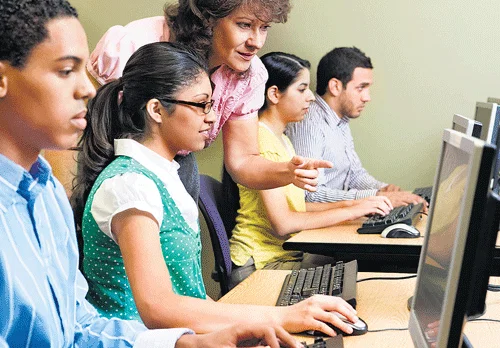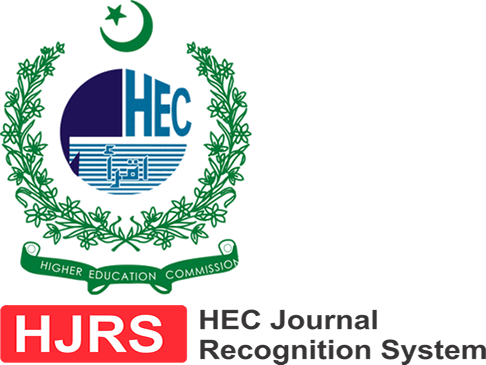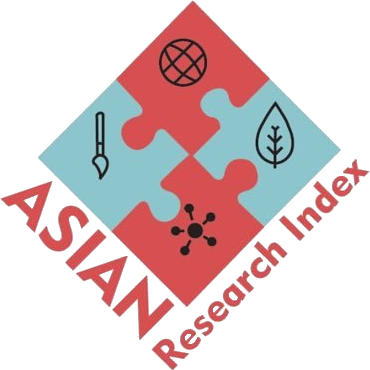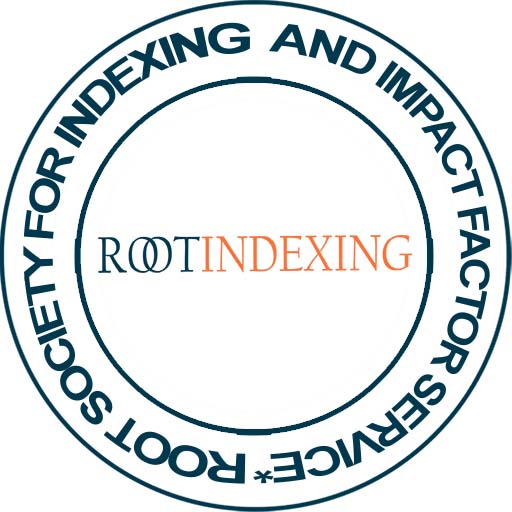IMPACT OF TEACHING EXPERIENCE OF TEACHERS ON THE ACCOMPLISHMENT OF THEIR PROFESSIONAL RESPONSIBILITIES
DOI:
https://doi.org/10.5281/zenodo.10997374Keywords:
Professionalism of teachers, Teacher experience. Academic and professional training.Abstract
This study “Impact of teaching experience of teachers on the accomplishment of their professional responsibilities” was conducted to know how teaching experience affects students' achievements and teachers' performance in high school and college. Objecties of the study were (1) to identify the impact of Teachers’ teaching experience on the accomplishment of their professional responsibilities; and (2) to identify the impact of teachers' qualifications on their ability professional responsibilities. Research design was descriptive and survey method was used. Population was 1300 and sample was 518 teachers of 26 model Schools and Colleges of Islamabad. Rndom sampling technique was used for the purpose. Findings show that, there in no impact of teaching experience on the accomplishment of their professional responsibilities. Although there is no significant role in determining a teacher's professionalism, even if a teacher has less experience, they can still be professionals regardless of their degree of education and experience. It was concluded that investing in teachers training and development can have a positive impact on their ability to fulfil their professional responsibilities, ultimately improving the quality of education for students.
References
Darling-Hammond, L., & Baratz-Snowden, E. “A good teacher in every classroom: Preparing the highly qualified teachers our children deserve”. Educational Horizons. (2007). 85(2). p.116
Boyd, D., Lankford, H., Loeb, S., Rockoff, J., & Wyckoff, J."The narrowing gap in New York City teacher qualifications and its implications for student achievement in high-poverty schools." (2008). Journal of Policy Analysis and Management, 27(4). p.3
Klusmann, U., Richter, D., & Lüdtke, O. “Teachers’ emotional exhaustion is negatively related to students’ achievement: Evidence from a large-scale assessment study.” (2016). Journal of Educational Psychology, 108(8), pp. 1193–1203.
DOI: https://doi.org/10.1037/edu0000125. p-1200
Riyanto, M. & Sayer, M, I. “Teacher’s Duties and Responsibilities.” (2022). PPSDP International Journal of Education. 1(1). p.75
Goodson, F, I.,& Cole, L, A. “Exploring the Teacher's Professional Knowledge: Constructing Identity and Community.” (1994). Teacher Education Quarterly, Vol-21. p-100.
Ballou, D. & Podgursky, M. “Returns to Seniority among Public School Teachers.” (2002). The Journal of Human Resources, 37(4).
URL: http://www.jstor.org/stable/3069620. p.893, 910.
Kini,T. & Podolsky, A. “Does Teaching Experience
Increase Teacher Effectiveness? A Review of the Research.” (2016). Report by Learning Policy Institute. https://learningpolicyinstitute.org/our-work/publications-resources/ does-teaching-experience-increase-teacher-effectiveness-review-research. p.1
John, R. “Approaches to Learning or Levels of Processing: What Did Marton and Säljö (1976a) Really Say? The Legacy of the Work of the Göteborg Group in the 1970s.” (2015). Iterchange, 46(3).https://doi.org/10.1007/s10780-015-9251-9. p.54
Riyanto, M. & Sayer, M, I. “Teacher’s Duties and Responsibilities.” (2022). PPSDP International Journal of Education. 1(1). p.74

Published
How to Cite
License
Copyright (c) 2024 AL MISBAH RESEARCH JOURNAL

This work is licensed under a Creative Commons Attribution 4.0 International License.
AL-MISBAH Research Journal is full open access and licensed under Creative Commons Attribution 4.0 International License; and Published by: Research Institute of Culture & Ideology (REINCI), Islamabad, Pakistan. This allows the research community and the general public to gain unlimited, free and immediate access to scholarly articles, and to reuse the content freely provided that proper attribution is given to the original authors.









